In the dynamic world of logistics and transportation, choosing the right container truck is pivotal for optimizing efficiency, ensuring safety, and meeting diverse shipping needs. At CarMax Vehicle, we specialize in manufacturing a wide array of container trucks designed to cater to various industries and logistical requirements. This comprehensive guide delves into the different types of container trucks, their unique features, and the benefits they offer, helping you make informed decisions for your transportation needs.
1. Dry Van Container Trucks
Dry van container trucks are among the most commonly used in the transportation industry. They are versatile, enclosed trailers designed to carry a wide variety of dry goods. These trucks are ideal for transporting non-perishable items such as electronics, clothing, and packaged foods.
Features:
- Enclosed Structure: Protects cargo from weather and theft.
- Standard Sizes: Typically available in 53-foot and 48-foot lengths.
- Versatile Loading Options: Equipped with roll-up doors for easy access.

Benefits:
- Security: Enclosed design minimizes the risk of cargo theft and damage.
- Flexibility: Suitable for a broad range of shipping needs.
- Cost-Effective: Lower cost compared to specialized container trucks.
2. Refrigerated Container Trucks (Reefers)
For transporting perishable goods requiring temperature control, refrigerated container trucks, commonly known as reefers, are indispensable. These trucks maintain specific temperature ranges to ensure the freshness and safety of products such as fruits, vegetables, dairy products, and pharmaceuticals.
Features:
- Temperature Control Systems: Capable of maintaining precise temperature settings.
- Insulated Walls: Enhance energy efficiency and temperature stability.
- Advanced Monitoring: Equipped with tracking systems to monitor temperature in real-time.
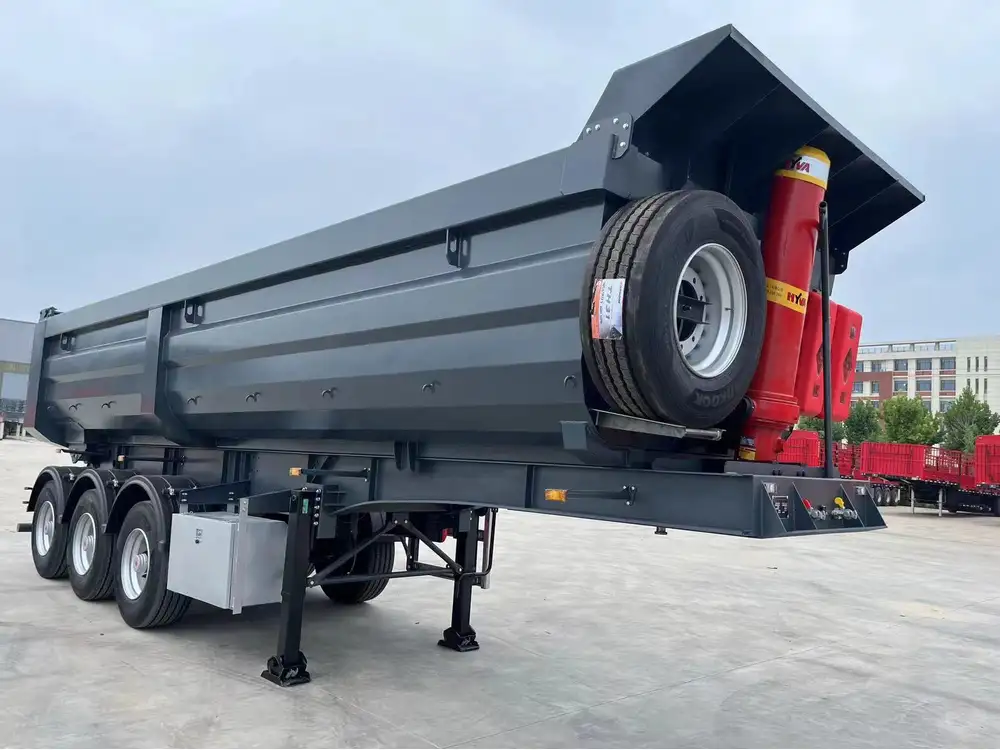
Benefits:
- Preservation of Goods: Ensures perishable items remain fresh during transit.
- Regulatory Compliance: Meets food safety and pharmaceutical transportation standards.
- Extended Shelf Life: Reduces spoilage and extends the product’s usable life.
3. Flatbed Container Trucks
Flatbed container trucks are designed with a flat, open deck, making them ideal for transporting oversized or irregularly shaped cargo. Industries such as construction, manufacturing, and heavy machinery rely on flatbed trucks for their versatility and ease of loading.
Features:
- Open Deck Design: Facilitates easy loading and unloading of bulky items.
- Support Rails: Provide additional stability for cargo.
- Customizable Lengths: Available in various sizes to accommodate different loads.
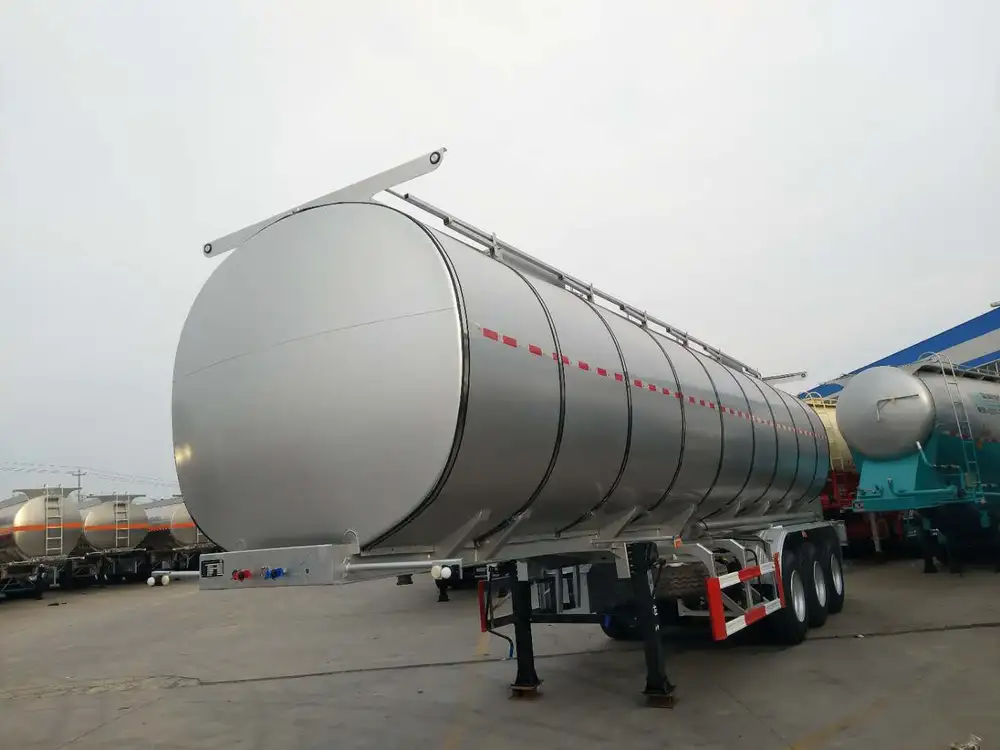
Benefits:
- Versatility: Can transport a wide range of goods, including heavy machinery and construction materials.
- Ease of Loading: Simplifies the process of securing and transporting large or awkwardly shaped items.
- Cost Efficiency: Often more affordable for certain types of cargo compared to enclosed containers.
4. Step Deck (Drop Deck) Container Trucks
Step deck, or drop deck container trucks, feature a lower deck height compared to standard flatbeds. This design allows for the transportation of taller cargo that would otherwise exceed height restrictions on standard flatbed trucks.
Features:
- Lower Deck Height: Accommodates taller cargo without exceeding road height limits.
- Multiple Deck Levels: Offers additional space for hauling multi-level loads.
- Sturdy Construction: Built to support heavy and tall cargo securely.
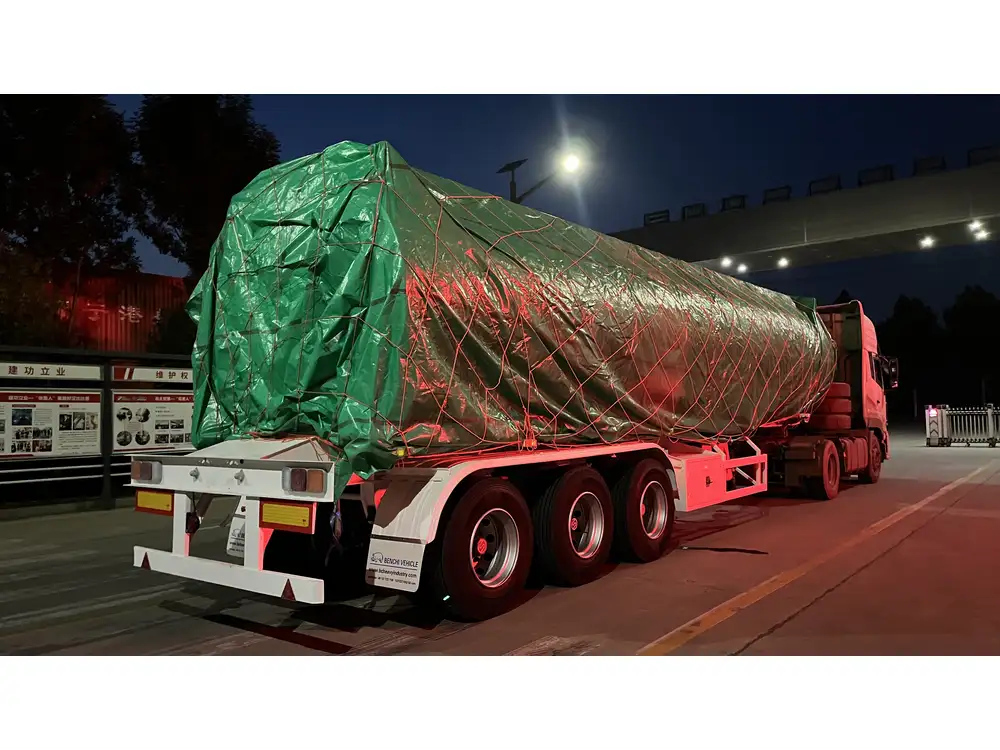
Benefits:
- Height Accommodation: Enables the transport of taller items such as construction equipment and large machinery.
- Enhanced Stability: Lower center of gravity improves vehicle stability during transit.
- Versatility: Suitable for a variety of cargo types requiring additional height clearance.
5. Tank Container Trucks
Tank container trucks are specialized for transporting liquids, gases, and other bulk materials. These trucks are essential for industries such as chemicals, food and beverage, and pharmaceuticals, where safe and efficient liquid transport is crucial.
Features:
- Storage Tanks: Specifically designed tanks that can handle various liquids and gases.
- Safety Features: Equipped with valves, gauges, and emergency shut-off systems.
- Insulation Options: Available with insulation for temperature-sensitive liquids.

Benefits:
- Safety: Robust design minimizes the risk of leaks and spills.
- Efficiency: Facilitates the transport of large volumes of liquids in a single trip.
- Compliance: Meets industry standards for transporting hazardous and non-hazardous liquids.
6. Curtain Side Container Trucks
Curtain side container trucks combine the security of enclosed trailers with the flexibility of flatbeds. They feature a flexible curtain instead of solid walls on the sides, allowing for easier access to the cargo while maintaining protection from the elements.
Features:
- Flexible Curtains: Made of durable materials that can be quickly opened or closed.
- Easy Loading and Unloading: Side curtains enable wider access for loading heavy or oversized items.
- Enclosed from Top and Rear: Protects cargo from weather and unauthorized access.

Benefits:
- Enhanced Accessibility: Simplifies loading and unloading processes for diverse cargo types.
- Adaptability: Suitable for both bulk and palletized goods.
- Cost-Effective Protection: Provides a balance between security and ease of access.
7. Lowboy Container Trucks
Lowboy container trucks are designed with a significantly lower deck height, making them ideal for transporting exceptionally tall or heavy machinery that requires a lower center of gravity for stability during transit.
Features:
- Ultra-Low Deck Height: Facilitates the transport of tall machinery without exceeding legal height limits.
- Heavy-Duty Construction: Built to support extremely heavy loads.
- Adjustable Suspension: Enhances stability and load distribution.
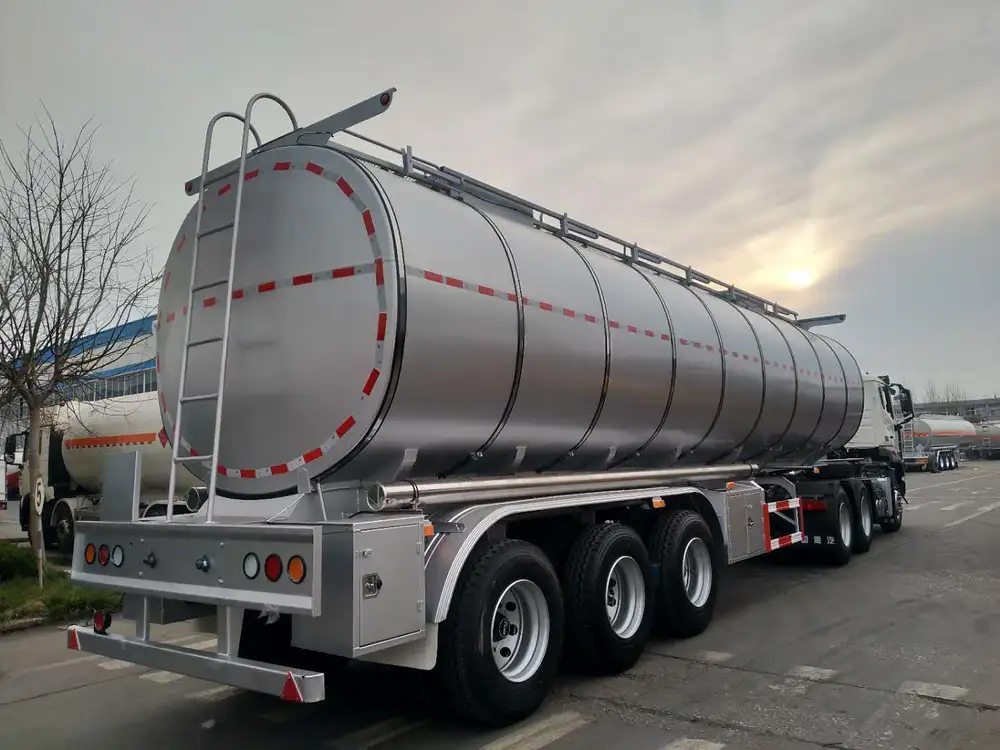
Benefits:
- Transport of Oversized Machinery: Ideal for construction equipment, industrial machinery, and other heavy-duty applications.
- Enhanced Stability: Lower deck height reduces the risk of tipping and improves handling.
- Regulatory Compliance: Meets height and weight regulations for transporting oversized loads.
8. Side Access Container Trucks
Side access container trucks provide rear access like traditional trucks but also feature side doors, offering alternative loading and unloading points. This design is beneficial for operations that require multiple loading points or need to streamline the loading process.
Features:
- Dual Access Points: Rear and side doors facilitate flexible loading and unloading.
- Enhanced Cargo Handling: Simplifies the management of multiple types of cargo within the same container.
- Robust Construction: Ensures durability and security of cargo from all access points.
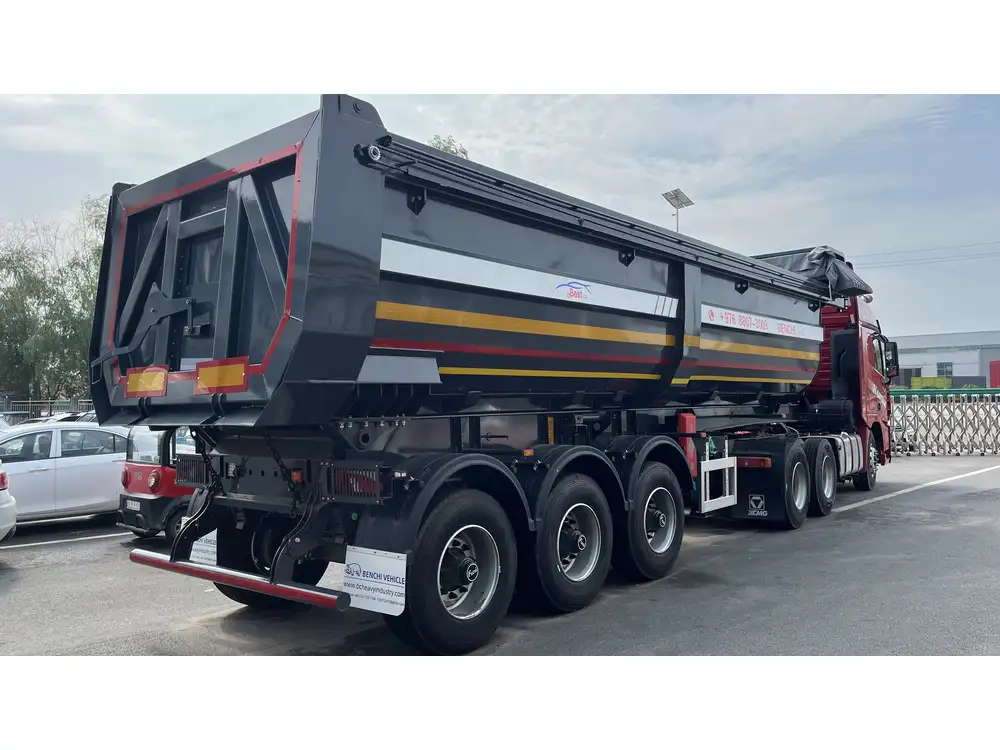
Benefits:
- Operational Efficiency: Reduces loading and unloading time by providing multiple access points.
- Flexibility: Accommodates varied cargo handling requirements.
- Space Optimization: Improves cargo placement and maximizes container space utilization.
9. Specialized Container Trucks
Beyond the standard types, specialized container trucks are tailored to meet specific industry needs. These may include flatbeds with extendable wings, double-deck container trucks, and other custom configurations designed for unique transportation challenges.
Features:
- Custom Designs: Engineered to handle specific types of cargo or logistical requirements.
- Advanced Features: May include hydraulic lifts, specialized tie-downs, and enhanced safety systems.
- Industry-Specific Adaptations: Modified to comply with regulations and standards of particular industries.

Benefits:
- Tailored Solutions: Addresses unique transportation needs that standard container trucks cannot.
- Increased Efficiency: Optimizes cargo handling and transport for specialized goods.
- Competitive Advantage: Provides businesses with customized transportation solutions to enhance their supply chain operations.
Comparison Table of Container Truck Types
| Type of Container Truck | Best For | Key Features | Primary Benefits |
|---|---|---|---|
| Dry Van | General non-perishable cargo | Enclosed structure, standard sizes, roll-up doors | Security, flexibility, cost-effectiveness |
| Refrigerated (Reefers) | Perishable goods | Temperature control, insulated walls, monitoring systems | Preservation, compliance, extended shelf life |
| Flatbed | Oversized or irregular cargo | Open deck, support rails, customizable lengths | Versatility, ease of loading, cost efficiency |
| Step Deck (Drop Deck) | Taller cargo | Lower deck height, multiple levels, sturdy construction | Height accommodation, enhanced stability, versatility |
| Tank Container | Liquids and gases | Specialized storage tanks, safety features, insulation options | Safety, efficiency, compliance |
| Curtain Side | Mixed bulk and palletized goods | Flexible curtains, side and rear access, enclosed top | Enhanced accessibility, adaptability, cost-effective protection |
| Lowboy | Extremely tall or heavy machinery | Ultra-low deck height, heavy-duty construction, adjustable suspension | Transport of oversized machinery, enhanced stability, regulatory compliance |
| Side Access | Multiple access loading requirements | Dual access points, robust construction, enhanced cargo handling | Operational efficiency, flexibility, space optimization |
| Specialized | Unique industry-specific needs | Custom designs, advanced features, industry adaptations | Tailored solutions, increased efficiency, competitive advantage |
Choosing the Right Container Truck for Your Needs
Selecting the appropriate container truck involves assessing several factors to ensure that the transportation method aligns with your specific requirements. At CarMax Vehicle, we guide our clients through this decision-making process by evaluating key elements such as cargo type, load size, distance, and industry regulations.
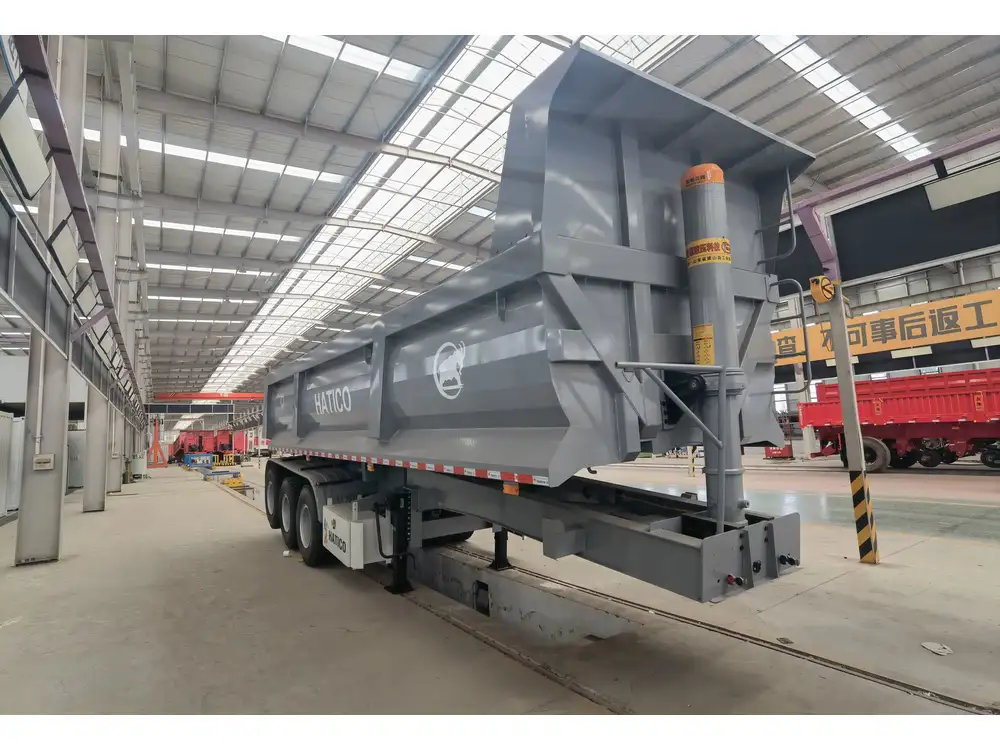
Key Considerations:
Cargo Type and Sensitivity:
- Determine whether your goods are perishable, hazardous, oversized, or require special handling.
- For temperature-sensitive items, refrigerated trucks are essential, while flatbeds are ideal for bulky machinery.
Load Size and Weight:
- Assess the volume and weight of your cargo to select a truck with adequate capacity.
- Lowboy trucks are suitable for exceptionally heavy loads, whereas dry vans cater to standard-sized shipments.
Transportation Distance and Conditions:
- Long-distance hauls may benefit from fuel-efficient and comfortable trucks, while local deliveries might prioritize maneuverability and quick loading.
- Consider road conditions and potential obstacles that could impact truck performance.
Regulatory Compliance:
- Ensure the chosen container truck meets all local and international transportation regulations.
- Specialized trucks are often designed to comply with specific industry standards.
Budget and Cost Efficiency:
- Balance the initial investment with long-term operational costs.
- Opt for versatile trucks like curtain sides to maximize cargo capacity and reduce the need for multiple vehicle types.
Benefits of Partnering with CarMax Vehicle
At CarMax Vehicle, we pride ourselves on delivering high-quality, reliable container trucks that cater to a diverse range of transportation needs. Our commitment to innovation, durability, and customer satisfaction ensures that our clients receive top-notch vehicles designed for optimal performance and longevity.
Why Choose CarMax Vehicle:
- Expertise and Experience: Decades of industry experience in manufacturing superior container trucks tailored to various logistics requirements.
- Customization Options: Flexible design options to meet the unique needs of different industries and cargo types.
- Quality Assurance: Rigorous testing and quality control measures to ensure each truck meets the highest standards of safety and performance.
- Customer Support: Comprehensive support services, including maintenance, repairs, and consultation to enhance your transportation efficiency.
- Sustainability Focus: Incorporating eco-friendly technologies and materials to promote sustainable transportation solutions.
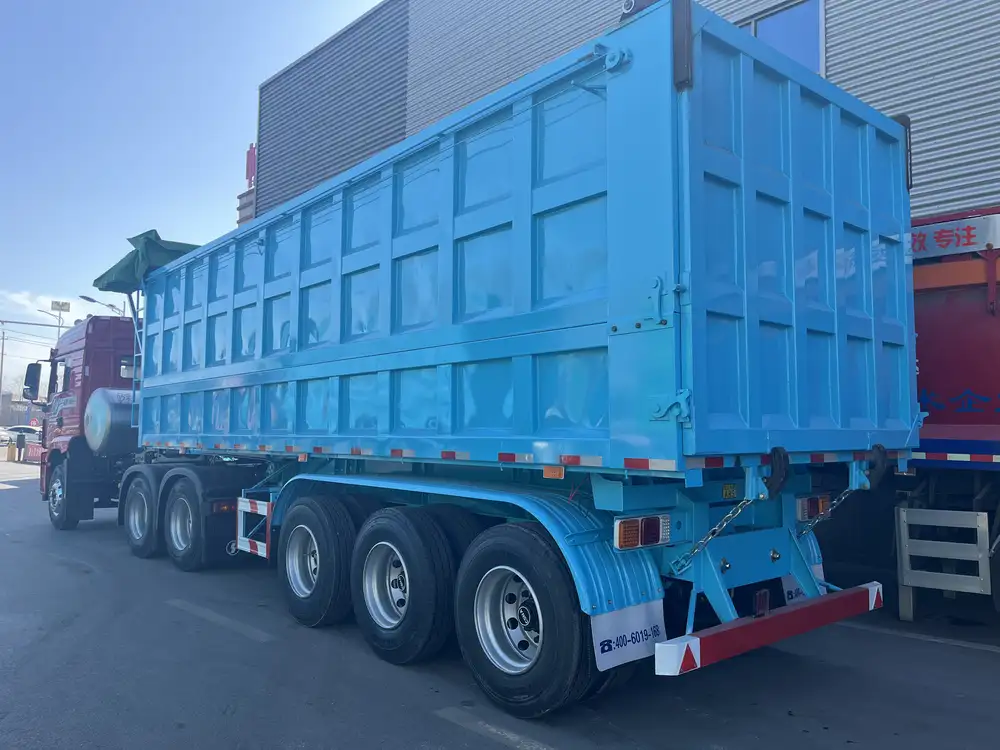
How to Maintain Your Container Truck
Proper maintenance is crucial for ensuring the longevity and reliability of your container truck. Regular maintenance not only extends the vehicle’s lifespan but also minimizes the risk of breakdowns and costly repairs.
Maintenance Tips:
Regular Inspections:
- Conduct daily and weekly inspections of critical components such as brakes, tires, lights, and temperature controls (for reefers).
- Address any signs of wear or damage promptly to prevent further issues.
Routine Servicing:
- Follow the manufacturer’s recommended service schedule for engine oil changes, filter replacements, and system checks.
- Utilize genuine parts and components to maintain optimal performance and safety.
Cleaning and Upkeep:
- Keep the container truck clean to prevent corrosion and damage to the cargo area.
- Pay special attention to seals and joints to ensure they remain airtight and watertight.
Driver Training:
- Train drivers on proper handling and operation techniques to reduce wear and tear on the vehicle.
- Emphasize the importance of adhering to load limits and securing cargo correctly.
Advanced Monitoring Systems:
- Install GPS and telematics systems to monitor vehicle performance and receive real-time alerts for maintenance needs.
- Use data analytics to identify patterns and address potential issues proactively.
Future Trends in Container Truck Design
The transportation industry is continually evolving, with advancements in technology and shifting market demands driving innovation in container truck design. CarMax Vehicle remains at the forefront of these developments, integrating cutting-edge features to enhance efficiency, sustainability, and user experience.
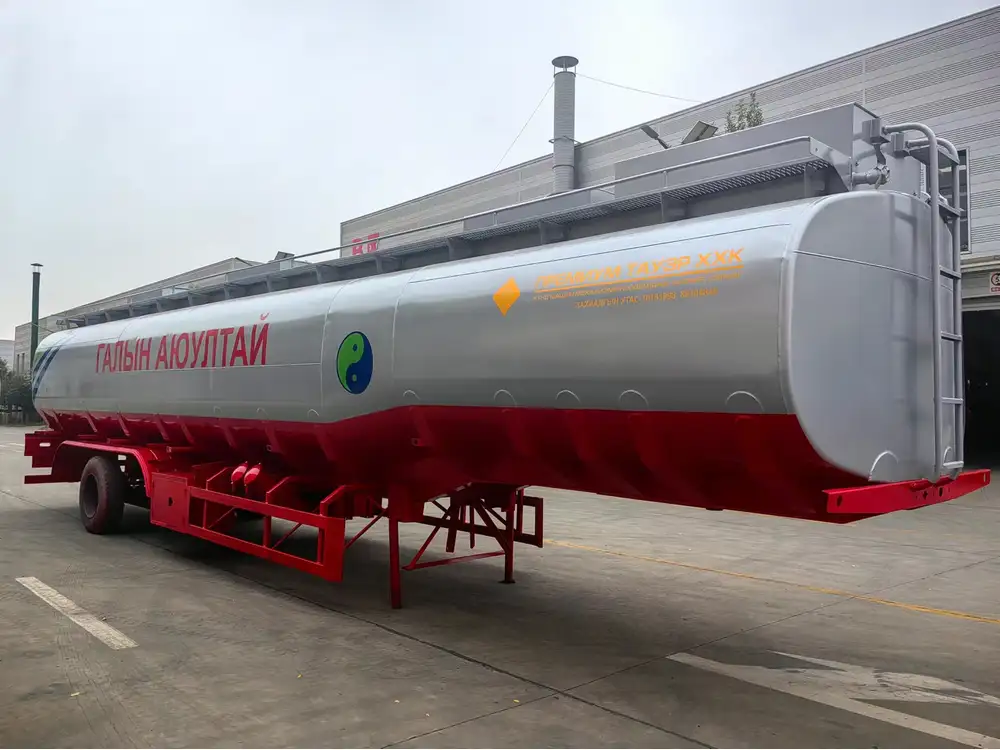
Emerging Trends:
Autonomous Driving Technology:
- Integration of self-driving capabilities to improve safety and reduce labor costs.
- Enhanced automation for route optimization and fuel efficiency.
Electric and Hybrid Powertrains:
- Development of electric and hybrid container trucks to reduce carbon emissions and operational costs.
- Investment in charging infrastructure and energy-efficient technologies.
Smart Container Management:
- Implementation of IoT devices for real-time tracking and condition monitoring of cargo.
- Advanced data analytics for predictive maintenance and supply chain optimization.
Lightweight Materials:
- Use of composite materials and advanced alloys to reduce vehicle weight without compromising strength.
- Improved fuel efficiency and payload capacity through innovative engineering.
Enhanced Safety Features:
- Incorporation of advanced driver-assistance systems (ADAS) such as collision avoidance, lane departure warnings, and adaptive cruise control.
- Improved structural designs for better crash protection and occupant safety.
Conclusion
Understanding the various types of container trucks is essential for optimizing your transportation strategy and achieving operational excellence. At CarMax Vehicle, we offer a diverse range of container trucks engineered to meet the unique demands of different industries and cargo types. By selecting the right container truck, you enhance your logistics efficiency, ensure the safety of your goods, and maintain compliance with industry standards.
Investing in a reliable and versatile container truck from CarMax Vehicle not only supports your current transportation needs but also positions your business for future growth and innovation. Explore our extensive lineup of container trucks today and discover the difference that quality engineering and dedicated customer support can make in your logistics operations.
Frequently Asked Questions (FAQs)
1. What factors should I consider when choosing a container truck for my business? When selecting a container truck, consider the type and sensitivity of your cargo, load size and weight, transportation distance, regulatory requirements, and your budget. Additionally, assess the truck’s features, such as temperature control for perishables or specialized fittings for oversized items.
2. How does a refrigerated container truck differ from a dry van? A refrigerated container truck, or reefer, is equipped with temperature control systems to maintain specific temperature ranges, making it ideal for transporting perishable goods. In contrast, a dry van is an enclosed trailer without temperature control, suitable for general non-perishable cargo.
3. What maintenance practices are essential for ensuring the longevity of a container truck? Essential maintenance practices include regular inspections, routine servicing as per manufacturer guidelines, keeping the truck clean, training drivers on proper operation, and using advanced monitoring systems to detect and address issues early.
4. Can CarMax Vehicle customize container trucks to meet specific industry needs? Yes, CarMax Vehicle offers customization options to tailor container trucks to meet the unique requirements of various industries, including specialized fittings, enhanced safety features, and custom design configurations.
5. What are the benefits of investing in electric or hybrid container trucks? Electric and hybrid container trucks offer reduced carbon emissions, lower operational costs, and improved fuel efficiency. They also align with sustainability goals and can provide long-term savings through energy-efficient technologies.



